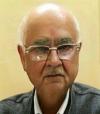Suggest Treatment For GERD

Poor choice on part of gastroenterologist to do surgery at a age of 17 without even tryin to manage things conservatively(a n=umber of drugs are available apart from ppi's which can't cure but can control all symptoms very well.
Detailed Answer:
Hello,
Thanks for choosing HealthcareMagic for your query.
Have gone through your details and i appreciate your concerns.
As true for any other surgery Nissen surgery also is not successful in 100% of cases.Laparoscopic antireflux surgery though is a highly effective treatment in 80%-90% of patients with gastroesophageal reflux disease (GERD). But 10%-20% of patients continue to have symptoms postoperatively. Of these, some 3%-6% require a second surgery.Recurrence or persistence of reflux symptoms (i.e., heartburn and regurgitation) and postoperative persistent dysphagia are the most common indicators for failure of Nissen fundoplication.
As per the history mentioned by you
"I've noticed that the acid reflux is starting to come back now. especially when I do any jogging or sit ups or eat anything acidic." most likely the surgery is now unsuccessful in your case and hence symptoms are returning back.
Truely speaking doing niisen in a patient 17 year old was not a good choice by surgeon.As mentioned by you you were on prilosec before surgery.Pantoprazole is initial and basic drug used in patient with GERD.A number of better combinations are available which can control symptoms very well.Though it can't cure GERD yet symptoms are controlled to a limit that we can call a near cure can be achieved.
Firstly i would not suggest you to go for a repeat surgery(you are just 24).
Rather control of symptoms by using medication and proper life style modification would a better idea.
Tests suggested are-
High-resolution esophageal manometry. Using a catheter inserted down your esophagus, muscle contractions in your esophagus are measured when you swallow water.
Endoscopy- To visualise esophagus and stomach.
Please request your gastroenterologist to start you on PPI-antacids like Rabeprazole or EsomeprazoleEsomeprazole can be used in the dosage as high as 80 mg twice daily.Trials have shown that esomeprazole is superior to other PPI's in controlling reflux symptoms. Also, request him/her to add Domperidone 30mg or Levosulpiride(both are prokinetic)slow release once daily. This will slow down the reflux of acid back.Prokineic should be added in your regimen.
Gerd consists of basically two parts-
1)Overproduction of acid by parietal or oxyntic cells of stomach(would be controlled by Esomeprazole).
2)Reflux of this acid back into stomach-Controlled by Prokinetic drugs like Levosulpiride or Domperidon.
An antacid containing local anesthetic (Mucaine gel ) should be taken 2tsf thrice daily.
Acotiamide is another wonderful new drug and is very effective in controlling symptoms of GERD and esophagitis. In trials- Acotiamide, a gastrointestinal motility modulator, at a standard dose of 100mg thrice daily has significantly affected esophageal motor functions or gastroesophageal reflux in healthy adults.
All these drugs can be considered by your gastroenterologist to provide you with symptomatic relief in your problem.All these medicine can be used at a time also by your primary.
To prevent the esophageal damage from developing into Barett or acalasia cardai i would suggest you to ask your gastroenterologist to follow aggressive treatment pattern initially. As your symptoms will improve drugs can be tappered off gradually.
Life style changes-
Avoid-
Dairy products, which contain sugar lactose that causes gas.
Vegetables, including onions, radishes, cabbage, celery, carrots, brussel sprouts, broccoli, cauliflower and legumes.
Fruit sugar, which is especially high in prunes, raisins, bananas, apples, apricots and fruit juices from prunes, grapes and apples
Fiber.
Fatty foods and carbonated drinks.
Take fat burners available in market.
Try Eating more fermented foods. These are rich in both good bacteria and enzymes you can try raw natto kefir or cultured veggies. This is probably one of the most important first steps.
Take a high-quality probiotic.
Take external enzyme supplements.
Exercising, to help keep food moving through your system.
Using spices that may help to prevent flatulence. These include turmeric, coriander, peppermint, fennel, sage, chamomile and ginger.
Finally, when you reintroduce a food that was previously a gas-causing food, be sure you do so slowly. This will give your body a chance to adapt to the adjustment.
Follow this for 21 days and revert back how you feel.
Surgery should not be done again.You are just 24 dear and re exploring gut again and again can pose serious problems in future.
So try to control things naturally.Reexploration should be the last option.
Hope i answered your query in details.
In case you have more doubts feel free to ask
Answered by

Get personalised answers from verified doctor in minutes across 80+ specialties



